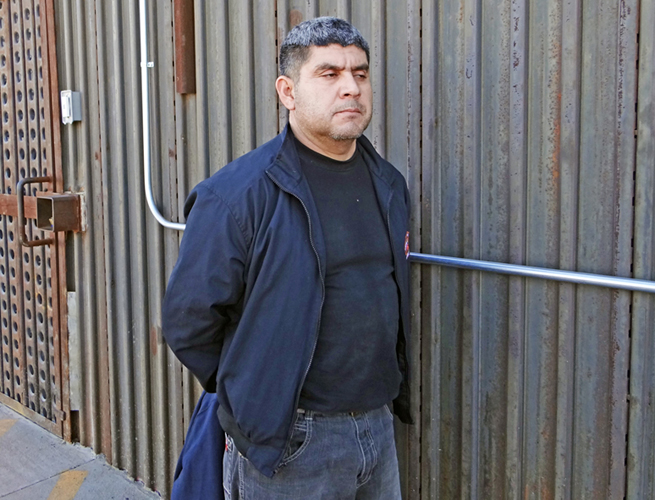ICE deports Mexican murder suspect living in Salt Lake City area
SALT LAKE CITY – A 41-year-old Mexican national wanted for murder by authorities in Baja California was removed Wednesday by U.S. Immigration and Customs Enforcement's (ICE) Enforcement and Removal Operations (ERO) officers.
Saul Camargo-Avendano was transported from Salt Lake City by commercial airline under ICE escort to San Diego where he was turned over to Mexican officials at the San Ysidro border crossing. Camargo-Avendano was encountered in December at the Salt Lake County Jail by ICE officers assigned to ERO's Criminal Alien Program (CAP) following his arrest by local police. He was transferred to ICE custody and a previous order of removal was reinstated Dec. 20 when the state charges were dismissed. In December 2011, Camargo-Avendano was removed twice in the same day after he attempted to illegally enter the U.S. at Calexico, Calif.
Records checks by ERO indicated Camargo-Avendano was a possible suspect in a homicide committed in Ensenada, Baja California. Los Angeles-based representatives from the Mexican Attorney General's Office subsequently confirmed that a warrant for his arrest was issued last September. Camargo-Avendano and seven other suspects were charged by Mexican authorities with the February 2011 slaying of Ensenada councilman Arturo Castellanos-Ruiz. Mexican officials believe the killing was connected to a labor union dispute. Camaro-Avendano is the second suspect apprehended by Mexican authorities in connection with the case.
"ICE's top immigration enforcement priority is to protect the community from individuals who may pose a threat to public safety, especially individuals who are using the U.S. as a haven from foreign prosecution," said Thomas E. Feeley, acting field office director for ERO Salt Lake City. "Had it not been for ERO officers working cooperatively with local jail authorities to screen inmates for immigration violations, this dangerous murder suspect would have been set free."
ERO's Criminal Alien Program identifies potentially deportable aliens incarcerated in jails and prisons throughout the United States. CAP officers interview and review inmates' biographical information. Although ERO initiates removal proceedings against criminal aliens through CAP, these individuals may remain in prison or jail to complete their criminal hearings or sentences. Under CAP, ERO uses a risk-based approach to make determinations about the detention and arrest of criminal aliens, with priority given to cases involving individuals deemed to be a security or public safety threat.
Since Oct. 1, 2009, ERO has removed more than 500 foreign fugitives from the United States who were being sought in their native countries for serious crimes, including kidnapping, rape and murder. ERO works with ICE's Office of International Affairs, foreign consular offices in the United States, and Interpol to identify foreign fugitives illegally present in the country.


